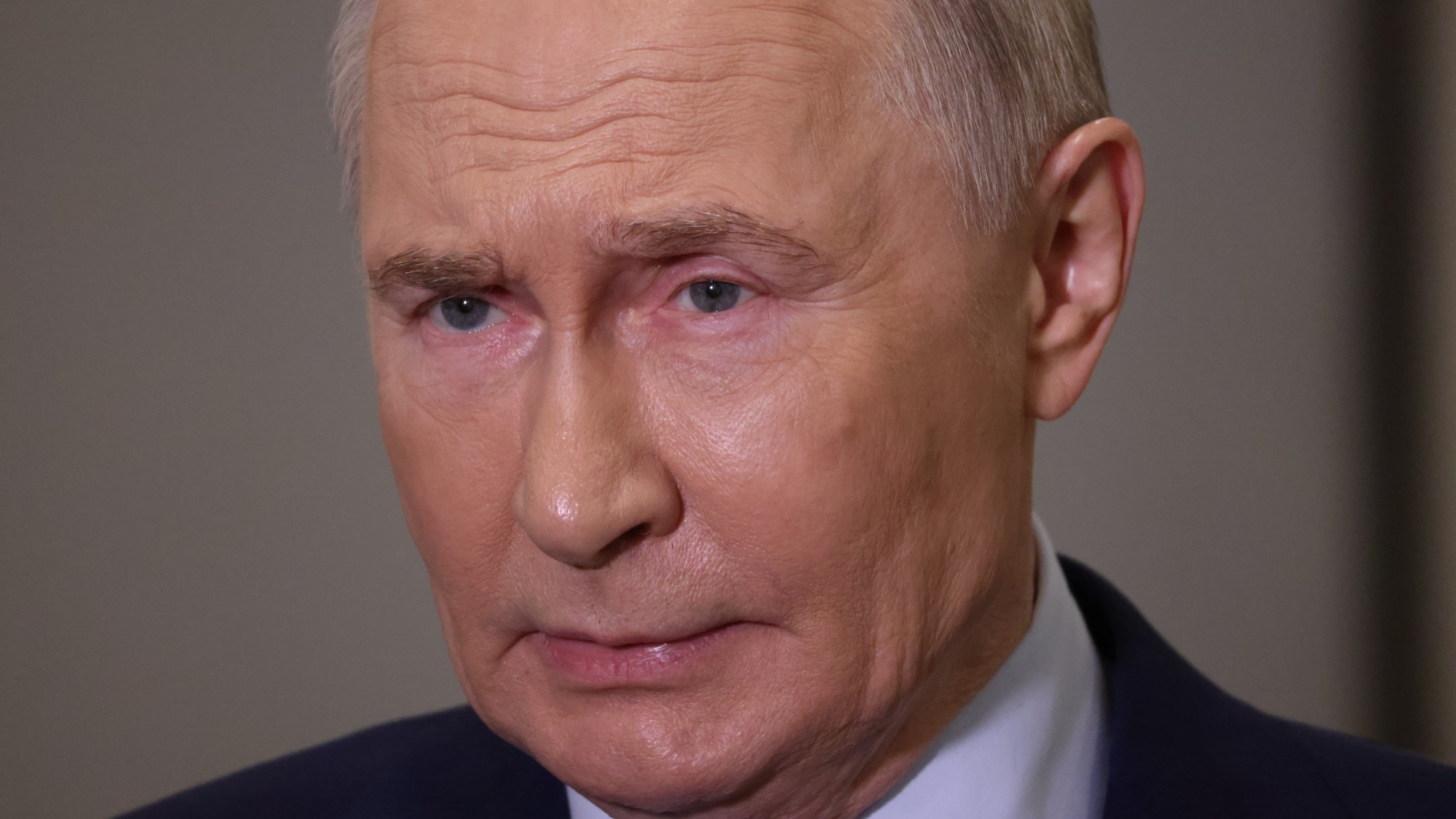Ukrainian lawmaker says on Fox News that any Russian oil and gas bought now 'is paid by our Ukrainian blood'

A free daily email with the biggest news stories of the day – and the best features from TheWeek.com
You are now subscribed
Your newsletter sign-up was successful
Fox News' Shannon Bream asked a Ukrainian member of parliament, Alexey Goncharenko, for the situation on the ground in Kyiv on Thursday morning, not long after Russia launched a large-scale attack on the country. "Hello — I cannot say good morning, unfortunately," he said. "There are explosions around the city, our military infrastructure, airports are bombed, and it's not only about Kyiv. It's Odessa, Kharkiv, Mariupol, it's the big cities of the country and smaller cities, too. There is a full-scale attack on Ukraine using heavy artillery and aviation and rockets."
Goncharenko urged Fox News viewers and other Americans to urge the U.S. government to respond to Russia President Vladimir Putin's invasion with the "toughest possible sanctions," including kicking Russia "out of the world economy" and banning "Russian oil and gas. That's something which can stop Russia." He told Bream he intends to stay and fight and asked NATO or the U.S. to cover Ukraine with a no-fly zone.
Goncharenko said a middling package of sanctions won't hurt Putin. But "a ban on Russian oil and gas, that's something that will stop them," he said. "They couldn't afford the economy, they couldn't afford their living, without the selling of oil and gas. And every barrel of oil and every cubic meter of gas which is now bought from Russia is something which is paid by our Ukrainian blood. It's just you should understand this. And today it's out Ukrainian blood, tomorrow it will be blood of other nations."
The Week
Escape your echo chamber. Get the facts behind the news, plus analysis from multiple perspectives.

Sign up for The Week's Free Newsletters
From our morning news briefing to a weekly Good News Newsletter, get the best of The Week delivered directly to your inbox.
From our morning news briefing to a weekly Good News Newsletter, get the best of The Week delivered directly to your inbox.
The U.S., other G7 countries, and allied nations will unveil their sanctions packages later Thursday. A ban on oil may not be in the cards in the short-term, but Putin's invasion may mark the beginning of the end of Russian oil and gas power in Europe.

A free daily email with the biggest news stories of the day – and the best features from TheWeek.com
Peter has worked as a news and culture writer and editor at The Week since the site's launch in 2008. He covers politics, world affairs, religion and cultural currents. His journalism career began as a copy editor at a financial newswire and has included editorial positions at The New York Times Magazine, Facts on File, and Oregon State University.
-
 How the FCC’s ‘equal time’ rule works
How the FCC’s ‘equal time’ rule worksIn the Spotlight The law is at the heart of the Colbert-CBS conflict
-
 What is the endgame in the DHS shutdown?
What is the endgame in the DHS shutdown?Today’s Big Question Democrats want to rein in ICE’s immigration crackdown
-
 ‘Poor time management isn’t just an inconvenience’
‘Poor time management isn’t just an inconvenience’Instant Opinion Opinion, comment and editorials of the day
-
 TikTok secures deal to remain in US
TikTok secures deal to remain in USSpeed Read ByteDance will form a US version of the popular video-sharing platform
-
 Unemployment rate ticks up amid fall job losses
Unemployment rate ticks up amid fall job lossesSpeed Read Data released by the Commerce Department indicates ‘one of the weakest American labor markets in years’
-
 US mints final penny after 232-year run
US mints final penny after 232-year runSpeed Read Production of the one-cent coin has ended
-
 Will latest Russian sanctions finally break Putin’s resolve?
Will latest Russian sanctions finally break Putin’s resolve?Today's Big Question New restrictions have been described as a ‘punch to the gut of Moscow’s war economy’
-
 Warner Bros. explores sale amid Paramount bids
Warner Bros. explores sale amid Paramount bidsSpeed Read The media giant, home to HBO and DC Studios, has received interest from multiple buying parties
-
 Gold tops $4K per ounce, signaling financial unease
Gold tops $4K per ounce, signaling financial uneaseSpeed Read Investors are worried about President Donald Trump’s trade war
-
 Electronic Arts to go private in record $55B deal
Electronic Arts to go private in record $55B dealspeed read The video game giant is behind ‘The Sims’ and ‘Madden NFL’
-
 New York court tosses Trump's $500M fraud fine
New York court tosses Trump's $500M fraud fineSpeed Read A divided appeals court threw out a hefty penalty against President Trump for fraudulently inflating his wealth
